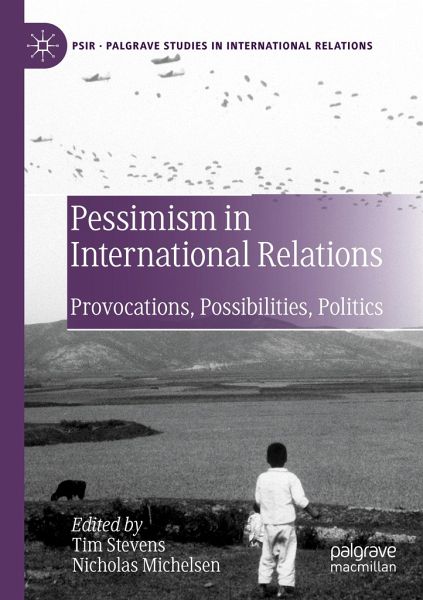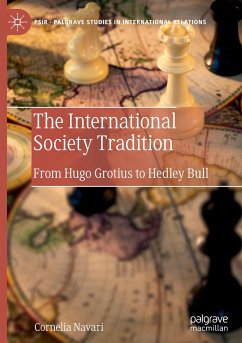
Pessimism in International Relations
Provocations, Possibilities, Politics
Herausgegeben: Stevens, Tim; Michelsen, Nicholas
Versandkostenfrei!
Versandfertig in 6-10 Tagen
76,99 €
inkl. MwSt.

PAYBACK Punkte
38 °P sammeln!
This volume explores the past, present and future of pessimism in International Relations. It seeks to differentiate pessimism from cynicism and fatalism and assess its possibilities as a respectable perspective on national and international politics. The book traces the origins of pessimism in political thought from antiquity through to the present day, illuminating its role in key schools of International Relations and in the work of important international political theorists. The authors analyse the resurgence of pessimism in contemporary politics, such as in the new populism, attitudes to...
This volume explores the past, present and future of pessimism in International Relations. It seeks to differentiate pessimism from cynicism and fatalism and assess its possibilities as a respectable perspective on national and international politics. The book traces the origins of pessimism in political thought from antiquity through to the present day, illuminating its role in key schools of International Relations and in the work of important international political theorists. The authors analyse the resurgence of pessimism in contemporary politics, such as in the new populism, attitudes to migration, indigenous politics, and the Anthropocene. This edited volume provides the first collection of scholarly work on pessimism in International Relations theory and practice and offers fresh perspectives on an intellectual position often considered as disreputable as it is venerable.














